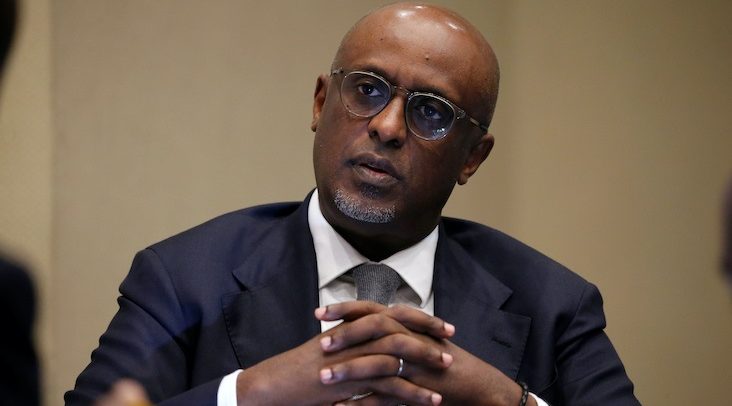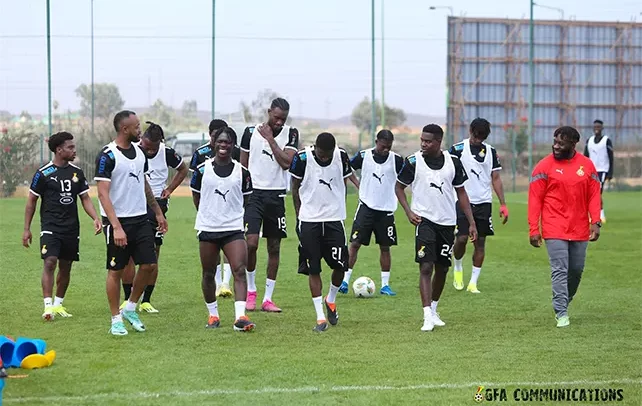
Ghana, a nation facing its worst economic challenges, recently received a much-needed cushion in the form of a US$3 billion bailout approved by the International Monetary Fund (IMF). This financial support has appeared to be a critical help for Ghana’s struggling economy, particularly in the face of the shocks brought by the COVID-19 pandemic.
This article explores the nuanced reasons behind why IMF bailouts may not necessarily act as saviors for Ghana.
Overview of the IMF bailout since Independence
Ghana has been to the IMF on 17 occasions. Ghana sought help from the fund for the first time in 1966 after the overthrow of Dr. Kwame Nkrumah by the NLC. On January 10, 1979, Ghana went back to the IMF after a series of corruption, economic mismanagement, and military coups which slowed economic growth in the country. Ghana again approached the fund five times under President Jerry John Rawlings (1983, 1984, 1987, 1988). In 2003, Ghana sought aid again from the fund under President John Agyekum Kufuor. In 2009, Ghana under President John Atta Mills went for a US$ 600 million bailout to help stabilize the economy shaken by the global financial crisis. In 2015 Ghana again went for a bailout of US$918million. Ghana’s economy received major support with the approval of a US$ 3 billion, 36-month Extended Credit Facility arrangement by the Executive Board of the International Monetary Fund (IMF) on May 17, 2023. The approved ECF is designed to be disbursed in three (3) tranches over 3 years. It began with an instant disbursement of US$ 600 million upon approval, supporting Ghana’s economy with the needed liquidity. On January 19, 2024, the Executive Board of the International Monetary Fund (IMF) completed the first review of the US$ 3 billion, 36-month Extended Credit Facility (ECF) arrangement which allows for an immediate disbursement of SDR 451.4 million (about US$600 million), bringing Ghana’s total disbursements under the arrangement to about US$1.2 billion.
Downsides to IMF Bailouts
Conditionalities
One major point of contention is the imposition of stringent conditions attached to financial assistance. IMF bailouts come with strict conditionalities, often involving structural adjustments and austerity measures. Critics argue that the IMF often requires developing nations to implement austerity measures, leading to social and economic hardships for their populations. This conditionality has raised questions about the appropriateness and effectiveness of such policies in addressing the unique challenges faced by developing economies. The US$ 3 billion IMF bailout for Ghana comes with a set of conditions intended to tackle the fundamental economic challenges and promote sustainable economic growth. These conditionalities are aimed at bringing about structural reforms and fiscal discipline. One of the conditions attached to this US$ 3 billion ECF is the removal of Value Added Tax (VAT) exemptions. This austerity measure is designed to broaden the tax net and increase government revenue. By taking away these exemptions, the government can improve its fiscal capacity and reduce the reliance on borrowing – leading to enhanced fiscal sustainability. There is a quarterly tariff adjustment including electricity and water tariff imposed on Ghana under the current arrangement. This measure will ensure that the tariffs match up production costs, enable the service providers to cover their expenses, and maintain service quality. The IMF bailout conditions place limitations on public sector employment, allowing only 0.5% of the present labor force to be employed. This has the potential of implicating businesses that rely on government partnerships and contracts. The current arrangement also limits the rate at which public sector employees can get a salary increase and has the potential to hamper the overall wage dynamics. Due to this austerity imposition, there may be an absence of a comprehensive compensation strategy that aligns with market rates and provides non-monetary incentives that can help attract and retain top talents in a potentially competitive labor market. There is the risk of losing our top professionals to the global markets.
Debt Sustainability Concerns
While IMF bailouts provide immediate financial relief, they also contribute to the debt burden. This has created a cycle of dependency, where Ghana has been in a continuous loop of borrowing to meet short-term obligations. Over time, this has led to a precarious debt situation that has hampered economic development. The government of Ghana December 19, 2023, announced a default on most of its external debt as economic crises worsened. The government had to suspend payments on most of its external debt, effectively defaulting as the country struggled to plug its cavernous balance of payments deficit. The government reached a level where its debt service wasn’t sustainable, so it stopped servicing debts including Eurobonds, commercial loans, and most bilateral loans, the Domestic Debt Exchange Programme (DDEP) which has led many individuals and corporate investors to lose on their investments.
Limited Focus on Structural Reforms
IMF bailouts over the years have prioritized short-term stabilization over addressing deep-rooted structural issues with the Ghanaian economy. Without addressing the underlying causes of economic challenges, the impact of the bailout may be temporary. Long-term sustainability requires a focus on comprehensive structural reforms that address systemic issues and promote inclusive growth. The IMF has a deep tendency to adopt standardized economic policies that may not be suitable for the diverse challenges faced by developing countries like Ghana. The application of generic solutions can undermine the effectiveness of interventions and potentially lead to economic chaos rather than sustainable development.
Governance and Representation
Questions about governance and representation also play a role in the controversy. Some argue that the decision-making power within the IMF is skewed in favor of advanced economies, limiting the influence of African nations in shaping policies that directly impact them. This lack of representation often results in funding decisions that do not align with the specific needs and priorities of African countries that go to the fund for financial aid. This lack of representation raises concerns about whether the interests of developing nations like Ghana are adequately considered when formulating policies and agreements.
Social Impact and Inequality
The stringent conditions attached to IMF bailouts often translate into social and economic hardships for the general population. Austerity measures, such as cuts to public spending, can disproportionately affect vulnerable communities. These impacts exacerbate inequality and may lead to social unrest, counteracting the intended positive effects of the bailout.
Recommendations for Effective IMF Bailouts
The International Monetary Fund (IMF) plays a crucial role in providing financial assistance to countries facing economic crises. African nations, often grappling with diverse challenges, require carefully tailored IMF bailouts to ensure sustainable recovery.
This article outlines key recommendations for designing effective bailout strategies, emphasizing the importance of a nuanced and collaborative approach.
i. Comprehensive Economic Reforms:
IMF interventions should prioritize comprehensive economic reforms tailored to the specific circumstances of each African country. Reforms should address structural issues, such as improving governance, enhancing fiscal responsibility, and promoting regulatory efficiency. These measures are essential for fostering long-term economic stability.
ii. Customized Solutions:
Recognizing the diversity among African nations, the IMF should avoid one-size-fits-all approaches. Tailored solutions, considering each country’s unique economic structure, cultural context, and institutional capacity, are vital for successful outcomes. This approach ensures that policy recommendations align with the local context, minimizing unintended consequences.
iii. Transparency and Accountability:
Transparency is fundamental for the success of any IMF bailout. African governments should commit to transparent financial management, providing accurate and accessible information about the utilization of funds. Additionally, the IMF should work closely with recipient countries to strengthen institutions, ensuring accountability in the use of financial assistance.
iv. Social and Environmental Considerations:
IMF bailouts should prioritize social and environmental sustainability. Reforms should aim to alleviate poverty, promote social inclusion, and address environmental concerns. This ensures that economic recovery benefits all segments of society while fostering a green and sustainable development path.
v. Inclusive Growth:
IMF programs should be designed to promote inclusive growth, focusing on poverty reduction and job creation. Structural adjustments should consider the social impact and aim to minimize adverse effects on vulnerable populations. This approach contributes to building a resilient and equitable economy.
vi. Collaboration with Local Stakeholders:
Effective implementation of IMF bailout programs requires collaboration with local stakeholders, including governments, civil society, and the private sector. Engaging these stakeholders fosters ownership of reform initiatives and increases the likelihood of successful outcomes. Regular consultations and open communication channels are essential in this regard.
Conclusion
While IMF bailouts may provide immediate financial relief, they are not a one-size-fits-all solution for African economies. A more nuanced approach, considering the diverse challenges faced by these nations, is essential. Addressing the concerns related to conditionalities, debt sustainability, social impact, and governance is crucial to ensuring that IMF interventions genuinely contribute to the long-term economic well-being of African nations like Ghana. Crafting successful IMF bailouts for African countries necessitates a holistic and collaborative approach. Customized solutions, comprehensive economic reforms, transparency, and inclusive growth should be central to the design of bailout programs. By incorporating these recommendations, the IMF can contribute significantly to the long-term stability and prosperity of African nations, fostering sustainable development in the region.
The writer is a banker at Ecobank Ghana PLC with a focus on but not limited to working with SMEs and Corporations in Ghana on their payment service needs.
The post Unraveling the myth: Why IMF bailouts have been a delusional economic savior for Ghana appeared first on The Business & Financial Times.
Read Full Story

















Facebook
Twitter
Pinterest
Instagram
Google+
YouTube
LinkedIn
RSS